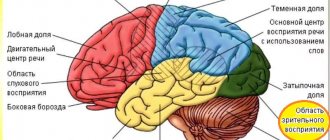The death of a loved one is a huge grief for everyone, especially when one of the parents dies. The loss of a mother or father is difficult for an adult to cope with, much less for young children and teenagers. After all, at that age you rarely think about death and the end of life’s journey.
It is quite natural that each teenager expresses psychological pain differently:
- some become depressed;
- others become withdrawn and silent;
- still others try to pretend that nothing happened, but secretly torment themselves;
- still others find some kind of activity that does not always have a positive effect on the maturing body.
People have long been trying to find an explanation for such a phenomenon as “death”. That is why philosophical and religious books help humanity accept the loss of a loved one and withstand internal pain that is difficult to explain in words.
Almost every person asks the question: “Is it necessary to suppress your feelings”? Many teenagers do not want to share their experiences, are afraid of being misunderstood and are offended by their environment as a whole. After all, the pain of loss absorbs all children's thoughts, which cannot provide a logical explanation for the events taking place.
Regardless of how the parent died (a long-term illness or a tragic situation), every child cannot fully understand why such grief affected his family. Sometimes children are offended by their father (or mother) who left our world and feel abandoned and deceived.
Talking about your pain is the best solution
In this case, no matter how hard it is to do, it is best to talk it out to a loved one. In the family circle, share your pain, cry, shout, share the misfortune with your loved ones. In this way, there is a certain understanding of what is happening, moral cleansing and the release of emotional negativity.
It is important to understand that when a person talks about his pain, it is sure to dull it. Naturally, children never forget their parents, and the memory of them always lives in their hearts and souls. However, it is important to learn to live on, having managed to overcome the loss, so as not to derail your own life.
What determines the intensity of grief?
Factor of surprise. The pain of sudden death is more intense and lasts longer. In such cases, getting stuck in grief lasts much longer and is more difficult to experience. The suddenness aggravates an already serious condition.
Relation degree. The death of an acquaintance, friend, husband, parent or child is experienced differently.
Degree of naturalness. It's one thing when a grandmother dies at 90 years old. This is perceived as difficult, but more natural. It’s different if a child dies. This is an unnatural death. It is directed against the flow of life. Logically, parents should leave first, then children.
How to say goodbye to the past and start a new life? Psychologist about the death of loved ones Read more
Bad habits will increase mental anguish
Quite often, after the death of one of their parents, teenagers try to find solace in alcohol or drugs. The use of such substances turns off the brain and promotes temporary forgetfulness. No matter how trite it sounds, such remedies are not a way out of the situation: they only temporarily dull the pain. Aggression is also quite natural for young people - it is a kind of defensive reaction of the body.
Alas, a bad habit cannot heal a mental wound, since every person sooner or later has to return to reality. In such a case, it is important to realize that the deceased parent would never approve of such behavior. After all, he would like to see his child happy and strong, despite any emotional experiences.
Transforming sadness into art
Many psychologists recommend keeping a diary at a time when your soul is especially difficult. By talking to your diary, you can throw out all your feelings, try to understand your feelings and experiences, realize the loss, learn to live on without a loved one.
Read more: How to start playing sports?
After all, each of us understands that our parents will forever remain in our hearts, and their words and actions will warm us throughout our lives. You can also transform your feelings into creativity: write poetry, draw, sing, etc. A favorite activity really helps to get rid of negative emotions and also develops personality. You should definitely try to distract yourself from sad thoughts in this way, and peace of mind will certainly come for a certain time.
Grief for mother's love
I learned that Cheryl always obeyed her mother. “We were a model family that only looks good from the outside,” she said. “In fact, mom rarely showed love.” Her mother went to church, had high expectations for her children (there were three of them), and forced them to do well in school. “She died quite sadly,” Cheryl said. “She was of the old school and proud of herself all her life, but she died in the arms of doctors. If she was on your side, you felt militant love. But she didn't share her problems. She said: “I don’t like people who poke their nose into my affairs.” She just lived her life."
It was very difficult for Cheryl's mother. She suffered enough as a child without receiving her mother's love. I began to understand the reasons for her rigidity: it was a necessary survival mechanism. In our sessions, we acknowledged that Cheryl loved and respected her mother, but also grieved for the mother she wished she had had: a more loving, more empathetic one.
Sometimes Cheryl would emerge from her pod and become cheerful, especially when talking about her 14-year-old son Jackson. Then she looked into my eyes and smiled. I felt her great love for him. Like many mothers, it was hard for her to see her son upset about his grandmother's death. It seemed unbearable to her. Cheryl intuitively felt that she had to relieve her son of sadness so that he would “be okay,” as her mother told her. We have recognized that this maternal reassurance instinct is often hard-wired into women, but it has the downside that it suppresses difficult feelings in children.
Active recreation allows you to temporarily escape
During periods of sadness and prolonged depression, it is recommended to rest more often. The ideal option for a teenager is to spend the holidays in a place where he has long wanted to visit in order to change the scenery and also recharge himself with positivity. It is necessary to spend time in the fresh air, because alone with nature, every person feels cheerful and peaceful.
After a “collision” with the death of a parent, it is important for a child to listen to his health and mental state. It is required to fight with all our might against aggression and deep sadness in order to avoid prolonged depression and not fall into despair.
It is difficult to comprehend the loss of a loved one, but only by understanding what happened can you accept the present and believe in the future. Despite the burning pain inside, it is important to continue to live for yourself and your deceased dad (mom). Remember that your every achievement would certainly please your parents, which means there are always goals to strive for.
Anger and depression after mother's death
Cheryl, a 55-year-old black woman, was not enjoying her life, neither her marriage nor her job. Two years ago, her mother died of a cardiovascular disease, but Cheryl never connected her feelings and her mother's death. I asked what she hoped to get from our work. “I want to feel better,” she said. “I felt like I was stuck in a gray capsule.”
I wanted to know what exactly brought her to me. Part of the problem was that Cheryl was losing her temper at work. As the head nurse of the hospital's pediatric ward, she had to remain patient. However, she felt that it was becoming increasingly difficult for her to control herself. The day before she came to me, Cheryl had a terrifying experience: a young patient named Teddy kept shouting “no” while she tried to give him an injection. Cheryl wanted to pick him up and shake him. She barely had time to run out of the room. This became a signal for her: it was time to change something. She talked to her husband, Jason, who suggested seeing a psychologist.
Cheryl's vulnerability was hidden behind a flammable toughness that could provoke a short, sudden attack. This is one of nature’s “design” mistakes, and a rather cruel one at that: when we are in pain, we often send “go away” signals or get angry at people. But what we really need is love.
I asked Cheryl to tell me about the gray capsule. “I don’t know...” she began. - I wake up and feel sad. I force myself to get up, and the day ahead seems so long. I constantly force myself to shower, get dressed, and eat breakfast, because otherwise I wouldn’t be able to get up in the morning. Only memorizing poetry makes me go to work. I read about this in a magazine. Every morning I learn a few poems while I'm on the subway. This is the only way to be distracted enough to get to work.”
Hobby for the soul
The best outlet can be an interesting hobby that will allow you to switch gears and help you fight bad thoughts. That is why teenagers who have experienced the bitterness of losing a loved one need to engage in their favorite pastime in their free time. Developing creativity helps overcome depression. In addition, constantly being in the company of like-minded people allows you to feel less sad.
The realization that you will never see mom or dad again can come immediately or be disguised as a reluctance to accept this fact. But in both cases, you cannot withdraw into yourself and restrain your emotions. This threatens deep depression. You feel like no one understands loss. Actually this is not true. Look around. You're not the only one losing loved ones. Your relatives may not have parents for a long time, and rarely does anyone remember that, for example, your grandmother has been living on her own for many years.
Imagine that your deceased parent sees you. Did he really want you to suffer, suffer, go astray, or give up your dreams? No, relatives always wish their children happiness. So maybe it’s worth thinking about this and continuing to pursue your dream in the name of your parents.
Self-test questions
- How did you feel immediately after the tragedy?
- What are you feeling now?
The last point says a lot about a person
Chekhov drinks deadly champagne. Pushkin eats cloudberries from the hands of his beloved wife... What do they usually ask for at such moments?
Tatiana Chalenko:
I was shocked by the incident. I was courting an amazing woman. She ran a small orphanage for mental retardation in the Tver region. Taught six people to speak. She was selfless and served people. And so my relatives and I are sitting at her bedside, and she bequeaths that after her death we will take her to where the orphanage is, cover her with firewood, burn her, and scatter her ashes over the village. However, there are no signs of dementia or other mental disorders. She just wanted to lose herself in her calling...
Contemporary art is increasingly turning to understanding human experiences of the approaching end... Haneke’s film “Love” collected all possible world awards. The plot is simple and complex at the same time: two very old people who love each other very much are trying to maintain dignity in the hopelessness of an illness that first takes away their physical strength and then takes away their mind...
Tatiana Chalenko:
We must die with dignity. As the prayer says: “not shameful.” Delicacy and patience are what a caregiver needs to learn. A person should not be humiliated, even if he no longer remembers his name, and his body is absolutely helpless...
Anatoly Antonov:
I recently found myself in the hospital. I was skiing and broke my hip. Didn't take age into account. The surgeons laughed: where is this skier? So this is about decent care. In my presence, a man died right in a wheelchair, without waiting for a place in the ward. Medical brothers and sisters talk in the presence of a dying person: this one is going to die, the bed will be free. It’s so scary to die among absolutely indifferent people. There is no talk of delicacy, physical and psychological, which old people need even more than young people.
Alexey German:
I was amazed how difficult it is to admit an elderly person to hospital and how minimal his chances of survival there are. This disregard for people of advanced age is a colossal problem. Today's attitude towards survival is ugly, as is the term “survival age”. Where did this come from? Oddly enough, this is a question about religion, education, morality, and a question about a very modest pension.
But here is a sick person at home... Having rushed to his aid, loved ones often do not count on their strength for years of methodical and largely ineffective work... And then the question arises: is caring for a sick mother a sacred duty or a punishment? And cases when relatives behave in such a way that you want to say: “Better leave!” are not uncommon...
Alexey German:
Probably the worst thing that can happen at such a moment is when relatives begin to get angry with each other. This happens very often. When children become tense, when the person himself feels like he is not being given something. It seems to me that dignity lies in somehow stopping yourself.
We must live thinking about the end, and then life will be both joyful and beautiful. And we drive our fear underground
Tatiana Chalenko:
Only an immature soul can raise the question of punishment. It is important to help her mature. Our beloved relatives - mothers, aunts, grandmothers - believe me, they understand everything... There is a very short period of time when you understand that you cannot help. When your mother does not recognize you and considers you her mother, this, of course, is shocking. But you are given the opportunity to love her a little more, to stroke her hand or head - while she is breathing, looking at you, while she is still warm... Does she see and hear? You need to ask for forgiveness, maybe get some orders. Can't hear you anymore? It's important to hold hands. Stroking little by little, even just touching the body, head, hair a little. We, sisters of mercy, know how important it is for a person to feel that he is not the only one dying. Someone sits next to him and breathes with him. I have been caring for patients for almost 25 years. As a rule, it happens like this: you went out the door, into the kitchen for a minute, and the person died. So this is a great gift from God to see him leave, to hear his last breath. A gift to your soul.
The hero of Sergei Livnev’s new film “Van Gogh” (he is very accurately and subtly played by Alexey Serebryakov), next to his father who has fallen ill with Alzheimer’s, is cured of indifference, incompleteness of existence, selfishness, ambitions... It turns out that in order to be human, you need to go through this too?
Tatiana Chalenko:
Caring for elderly people with dementia is a difficult but heart-saving story.
In Kaluga, an 86-year-old grandmother left home at night and froze to death. Society has fallen on his son, who himself has long been a pensioner... But does everything depend on relatives? Do they need support themselves?
Tatiana Chalenko:
I'm counseling a family. An elderly woman - 94 years old. Simple, poorly educated, hard worker. Her violations are already very extensive. And two daughters, you know, are old. How they look after their mother! How they patiently love, despite her endless questions, some childish actions. How they serve her! When you look at this, you want to live, and you believe in people, and you are happy, despite the terrifying situation! Everything is very simple, poor, meager. There is no money for dressing materials. But not an ounce of despondency or self-pity, only love and good humor.
True love only happens in old age. When you look at your husband and think: I didn’t love him before, but now I love him!
Alexey German:
Luckily, I don't know what dementia is. My dad died slowly, long and scary. He was very seriously ill for 20 years. We knew it. This knowledge was always there. In the case of my mother, everything happened very quickly. On the one hand, elderly parents are a terrible challenge. This is when you start to understand medicine. When you are overcome by shameful fatigue, and you live in endless anticipation of tragedy. But on the other hand, it is mutual understanding and happiness from the fact that you can come to them and feel that you are not alone and there will be no one closer to your parents.
Don't isolate yourself
Participate in funeral preparations. This is the last opportunity to see your loved one, and maybe to tell him what you didn’t have time to do. You will not be so lonely among people who are experiencing the same grief and suffering with you.
It happens that people are afraid to voice their thoughts. Then a diary will be a good helper. Take any notebook, notepad, album and write about everything that comes to mind in any order and sequence. Write only for yourself. They say that paper can endure a lot, and it's true. This technique will help you leave all the most exciting memories in your diary, and it will be easier for your inner self to return to reality and move on with life.
Keep a diary. Write down all your memories of your loved one - this will make it easier to cope with grief.
How to get through all the stages of grief
The theory of Elisabeth Kübler-Ross helped me see my emotions from the outside. When you name them and show them on yourself, it makes them not so big and important. These are the stages of grief:
- negation;
- anger;
- bargaining (let me explain: here we mean an attempt to come to an agreement with the Universe, God about something that is important to man);
- depression;
- Adoption.
I have already partially touched on almost all the points (the first emotion is denial, then anger, depression, acceptance). But it is important to structure them, which is what the author of the theory did. I would also like to consider the bargaining clause. A person tries to control his life and the situations that arise in it. But the world is big, and we, people, decide little in it (if you look globally), so trying to get something for yourself, promising in return to give up other things (less important in the hierarchy of human happiness) is a dead-end approach.
But a person must also go through this stage, there is no need to try to convince him of the meaninglessness of what is happening, he himself will understand this, when acceptance occurs, humility will come. A person who has experienced grief has the right to want to bring a loved one back to life, to meet him, to say important words to the one who died. Even an Orthodox Christian can behave this way, because this is a natural reaction.
Communicate
Talk to friends or relatives.
The emotions that we hold back often cause irreversible harm to health and cause serious illnesses. No matter how difficult it is, do not turn away from your friends and acquaintances. Are you encouraged to speak up and share your feelings? Do this even if you don't know the person well. Ask friends or family for help. Don’t close yourself off, talk about your experiences and fears. Ask what to do. Read more: How to talk to your parents?
Support the parent who continues to live near you. Remember that you are not the only one who is having a hard time. Imagine what it's like for mom or dad. Together with the death of a loved one, they lost a part of themselves. Support each other. Go through a difficult period together and start a new life.
Read more: Personality psychology: child from 8 to 11 years old
Talk to a psychologist. Don't ignore professional help. No need to be shy. In the end, this may remain your little secret, but talking to a specialist means helping yourself to realize and accept many things. You will be able to ask all the questions you are interested in about death, justice, about everything that worries you.
How to feel love again
Cheryl was obsessed with the events that occurred between her mother's first heart attack and her death. “I feel like I should have done more for Mom,” she sighed. Cheryl spoke with difficulty, as if there was a lump in her throat. Together we “reduced” the levels of anxiety that were blocking her feelings, and soon Cheryl began to experience searing rage. She described in detail every medication her mother took and every doctor's visit, especially the ones she missed.
As a nurse, Cheryl felt she should have known more, but she was a pediatric nurse so she didn't know much about heart disease in adults. Cheryl never talked to her mother about death - she was afraid that “it would ruin karma.” They superstitiously believed that mentioning “dead” words would awaken the bad gods, who would then take her mother to themselves. They discussed the upcoming vacation, plans for Christmas, but never even mentioned the possibility of death.
Since I couldn't imagine Cheryl's mother or them together, I asked her to bring photographs. She took a whole “family set”: funny pictures of herself and her brothers as children, her mother’s favorite brooch and shawl. It all lay on her lap as she told me family stories about vacations in Jamaica. I felt that Cheryl was very proud of her mother and her hard work to give her children everything. Cheryl's eyes sparkled as she told the story.
Suddenly she lifted the shawl and inhaled its scent: it shocked her. Tears flowed down my cheeks. Cheryl buried her face in the shawl, inhaled the smell, cried and wiped away her tears with a rhythmic movement every couple of minutes. The smell of her mother's perfume transported her back to the days when she sat on her mother's lap and sang against her chest.
After this incident, our work flowed much easier and faster. Cheryl only attended six sessions, but that was enough. It was as if she was waiting for someone to open it. She rediscovered the mother she loved with all her heart. “I thought that if I blocked my love, I would block the pain... it prevented me from living...” Cheryl shared. “Once upon a time I lost myself, but now I have found myself.”
Take a break
Try to get back to school as quickly as possible, no matter how difficult it may be. As a last resort, if you don’t want to part with your remaining parents, allow yourself unscheduled vacations. At school and at home your wishes will be treated with understanding.
Try to finish your parenting work. For example, if mom grew flowers and did not have time to plant a garden. Or maybe dad never cleaned up the garage. Firstly, the activity will distract you, and secondly, the result will remind you of a loved one.
If you are offered to take part in an event, a new school or student project, agree. This will distract you from sad thoughts. Nobody wants you to forget about your parent. But he definitely didn’t want you to be alone.
Painkiller
Stories will help you survive the most difficult stage: kind, deep, with strong images.
“The novel “Pollyanna” by Elenor Porter, the film “Alpine Story”, the series “Angel on Duty” - such books and films help us, together with the hero, get closer to the important point where pain is replaced by light sadness,” says teacher Olga Filippova.
A literary image can become a driver, a guide to a new reality: there is no longer a loved one there, but there is life, something good is ahead.
“The school curriculum contains a lot of literature about the death of loved ones. It is important that after discussing books, children leave not with questions that they must answer themselves (in grief this threatens retraumatization), but with supportive answers,” notes candidate of psychological sciences Yulia Egorushkina.
Difficult experiences, says Filippova, can also be expressed in creativity: many children begin to write poetry or draw. It is important to support any creative endeavor, even if it seems to you that its motives are reminiscent of tragedy and “stir the soul.”
Don't hide your emotions
Cry. Don't be shy about your feelings. You have lost not only your dad or mom, you have lost the main thing in life - a teacher, a reliable friend and protector, you have lost a role model. You have every right to cry as much as you need.
Let out your anger. It is natural to be angry in such a situation. This is one of the stages that people go through when something bad happens to their loved ones.
- At first you don't want to believe what happened. It's shock and denial.
- Then it seems to you that your loved one is alive, and you even see him in the crowd or wait for him to walk through the door. This is where the search takes place.
- The understanding that the parent cannot be returned leads to despair.
- Anger is expressed in anger at the whole world and at the parent himself for allegedly abandoning you.
- Anxiety and guilt can lead to depression if you do not cope with your emotions and do not accept what happened as an irreversible fact.
Read more: How to become a popular teenager?
Unleash your aggression. Find a way that is harmless to yourself and others. Go to the gym, hit a punching bag, run, pedal on a machine, scream in the middle of the forest. If your emotions do not find a way out, you will let off steam in portions, and even without meaning to, you can offend loved ones, classmates, teachers, without thinking that they are not to blame for your grief.
Read more: Child’s communication with adults and peers
How to cope with the death of a loved one?
Nikolai Chekhov. Young widow at her husband's grave
Only in the rarest cases is a person prepared in advance for the death of a loved one. Much more often, grief overtakes us unexpectedly. What to do? How to react? The story is told by Mikhail Khasminsky, head of the Orthodox Center for Crisis Psychology at the Church of the Resurrection of Christ on Semenovskaya (Moscow).
What do we go through when experiencing grief?
When a loved one dies, we feel that the connection with him is broken - and this gives us extreme pain. It’s not the head that hurts, it’s not the arm that hurts, it’s not the liver that hurts, it’s the soul that hurts. And it is impossible to do anything to make this pain stop.
Often a grieving person comes to me for a consultation and says: “Two weeks have already passed, but I just can’t come to my senses.” But is it possible to come to your senses in two weeks? After all, after a major operation we don’t say: “Doctor, I’ve been lying there for ten minutes, and nothing has healed yet.” We understand: three days will pass, the doctor will take a look, then remove the stitches, the wound will begin to heal; But complications may arise, and some stages will have to be completed again. All this may take several months. And here we are not talking about physical trauma - but about mental trauma; it usually takes about a year or two to heal. And in this process there are several successive stages, which are impossible to jump over.
What are these stages? The first is shock and denial, then anger and resentment, bargaining, depression and, finally, acceptance (although it is important to understand that any designation of stages is conditional, and that these stages do not have clear boundaries). Some go through them harmoniously and without delay. Most often, these are people of strong faith who have clear answers to the questions of what death is and what will happen after it. Faith helps you go through these stages correctly, experience them one after another, and ultimately enter the stage of acceptance.
But when there is no faith, the death of a loved one can become an unhealed wound. For example, a person can deny a loss for six months, saying: “No, I don’t believe it, this couldn’t happen.” Or “get stuck” in anger, which can be directed at doctors who “didn’t save”, at relatives, at God. Anger can also be directed at oneself and produce a feeling of guilt: I didn’t love him, I didn’t say enough, I didn’t stop him in time - I’m a scoundrel, I’m guilty of his death. Many people suffer from this feeling for a long time.
However, as a rule, a few questions are enough for a person to deal with his feelings of guilt. “Did you really want this man to die?” - “No, I didn’t want to.” - “What then are you guilty of?” “I sent him to the store, and if he had not gone there, he would not have been hit by a car.” - “Okay, but if an angel appeared to you and said: if you send him to the store, this person will die, how would you behave then?” “Of course, I wouldn’t have sent him anywhere then.” - “What is your fault? Is it that you didn't know the future? Is it that an angel did not appear to you? But what does this have to do with you?
For some people, a strong feeling of guilt may arise simply because the passage of the mentioned stages is delayed for them. Friends and colleagues do not understand why he has been gloomy and taciturn for so long. This makes him feel uncomfortable, but he can’t help himself.
For some, on the contrary, these stages can literally “fly by”, but after a while the trauma that they have not lived through emerges, and then, perhaps, even experiencing the death of a pet will be difficult for such a person.
No grief is complete without pain. But it’s one thing when you believe in God, and quite another when you don’t believe in anything: here one trauma can be superimposed on another - and so on ad infinitum.
Therefore, my advice to people who prefer to live for today and put off the main life issues for tomorrow: do not wait for them to fall on you out of the blue. Deal with them (and yourself) here and now, look for God - this search will help you at the time of parting with a loved one.
And one more thing: if you feel that you cannot cope with the loss on your own, if there has been no dynamics in experiencing grief for a year and a half or two, if there is a feeling of guilt, or chronic depression, or aggression, be sure to consult a specialist - a psychologist, a psychotherapist.
Not thinking about death is the path to neurosis
Nikolay Yaroshenko. Funeral of the firstborn. 1893
Recently I analyzed how many paintings by famous artists are devoted to the theme of death. Previously, artists took on the depiction of grief and sorrow precisely because death was inscribed in the cultural context. There is no place for death in modern culture. They don’t talk about it because “it’s traumatic.” In reality, it is just the opposite that is traumatic: the absence of this topic in our field of vision.
If in a conversation a person mentions that someone has died, then they answer him: “Oh, sorry. You probably don’t want to talk about it.” Or maybe it’s just the opposite that you want! I want to remember the deceased, I want sympathy! But at this moment they distance themselves from him, try to change the subject, fearing to upset him or offend him. A young woman’s husband died, and her relatives say: “Well, don’t worry, you’re beautiful, you’ll get married.” Or they run away like from the plague. Why? Because they themselves are afraid to think about death. Because they don't know what to say. Because there are no condolences skills.
This is the main problem: modern man is afraid to think and talk about death. He does not have this experience, it was not passed on to him by his parents, and even more so by their parents and grandmothers, who lived during the years of state atheism. That’s why today many people cannot cope with the experience of loss on their own and need professional help. For example, it happens that a person sits right on his mother’s grave or even spends the night there. What causes this frustration? From not understanding what happened and what to do next. And on top of this all sorts of superstitions are layered, and acute, sometimes suicidal problems arise. In addition, there are often children around who are experiencing grief, and adults with their inappropriate behavior can cause them irreparable mental trauma.
But condolences are a “shared illness.” Why bother with someone else’s pain if your goal is to make you feel good here and now? Why think about your own death? Isn’t it better to drive away these thoughts with worries, buy yourself something, eat deliciously, drink well? The fear of what will happen after death and the reluctance to think about it turns on a very childish defensive reaction in us: everyone will die, but I won’t.
Meanwhile, birth, life, and death are links of one chain. And it’s stupid to ignore it. If only because this is a direct path to neurosis. After all, when we are faced with the death of a loved one, we cannot cope with this loss. Only by changing your attitude towards life can you correct a lot inside. Then it will be much easier to survive the grief.
Erase superstitions from your mind
I know that Thomas receives hundreds of questions about superstitions. “We wiped the monument in the cemetery with children’s clothes, what will happen now?” “Can I pick up something if I dropped it in a cemetery?” “I dropped a handkerchief into the coffin, what should I do?” “A ring fell at a funeral, what is this sign for?” “Is it possible to hang photos of deceased parents on the wall?”
The hanging of mirrors begins - after all, this is supposedly a gateway to another world. Someone is convinced that a son cannot carry his mother’s coffin, otherwise the deceased will feel bad. What an absurdity, who else but his own son should bear this coffin?! Of course, the system of the world, where a glove accidentally dropped in a cemetery represents a certain sign, has nothing to do with Orthodoxy or faith in Christ.
I think this is also due to a reluctance to look inside oneself and answer really important existential questions.
Not all people in the temple are experts on matters of life and death
Vladimirov Ivan (1869-1947). Funeral
For many, the loss of a loved one becomes the first step on the path to God. What to do? Where to run? For many, the answer is obvious: to the temple. But it is important to remember that even in a state of shock, you must be aware of why exactly and to whom (or Whom) you came there. First of all, of course, to God. But for a person who comes to the temple for the first time, who perhaps does not know where to start, it is especially important to meet a guide there who will help him understand many of the issues that haunt him.
This guide, of course, should be a priest. But he doesn’t always have time; he often has his whole day scheduled literally minute by minute: services, travel and much more. And some priests entrust communication with newcomers to volunteers, catechists, and psychologists. Sometimes these functions are partially performed even by candle makers. But we must understand that in church you can bump into all kinds of people.
It’s as if a person came to the clinic, and the cloakroom attendant said to him: “What’s wrong with you?” - “Yes, back.” - “Well, let me tell you how to treat yourself. And I’ll give you literature to read.”
It's the same in the temple. And it is very sad when a person who is already wounded by the loss of his loved one receives additional trauma there. After all, to be honest, not every priest will be able to properly build communication with a person in grief - he is not a psychologist. And not every psychologist can cope with this task; they, like doctors, have a specialization. For example, under no circumstances will I undertake to give advice in the field of psychiatry or work with alcohol addicts.
What can we say about those who give out incomprehensible advice and breed superstitions! Often these are people close to the church who don’t go to church, but they come in: they light candles, write notes, bless Easter cakes, and everyone they know turns to them as experts who know everything about life and death.
But you need to speak a special language with people experiencing grief. Communication with grieving, traumatized people must be learned, and this matter must be approached seriously and responsibly. In my opinion, this should be a whole serious area in the Church, no less important than helping the homeless, prison or any other social ministry.
What you should never do is draw any cause-and-effect relationships. No: “God took the child because of your sins”! How do you know what only God knows? With such words a grieving person can be very, very traumatized.
And under no circumstances should you extrapolate your personal experience of death to other people; this is also a big mistake.
So, if you are faced with a severe shock and come to the temple, be very careful in choosing the people to whom you turn with difficult questions. And you shouldn’t think that everyone in the church owes you something - people often come to me for consultations, offended by the lack of attention to them in the church, but who have forgotten that they are not the center of the universe and those around them are not obliged to fulfill all their desires.
But church employees and parishioners, if they are asked for help, should not pretend to be an expert. If you want to truly help a person, quietly take his hand, pour him some hot tea and just listen to him. What he needs from you is not words, but complicity, empathy, condolences - something that will help him cope with his tragedy step by step.
If a mentor dies...
People often get lost when they lose a person who was a teacher or mentor in their life. For some it is a mother or grandmother, for others it is a completely stranger, without whose wise advice and active help it is difficult to imagine their life.
When such a person dies, many find themselves at a dead end: how to live on? At the stage of shock, such a question is quite natural. But if his decision drags on for several years, it seems to me simply selfish: “I needed this person, he helped me, now he has died, and I don’t know how to live.”
Or maybe now you need to help this person? Maybe now your soul should work in prayer for the deceased, and your life should become embodied gratitude for his upbringing and wise advice?
If an adult has lost an important person who gave him his warmth, his participation, then it is worth remembering this and understanding that now you, like a charged battery, can distribute this warmth to others. After all, the more you give away, the more creation you bring into this world, the greater the merit of that deceased person.
If they shared wisdom and warmth with you, why cry that now there is no one else to do it? Start sharing yourself - and you will receive this warmth from other people. And don’t constantly think about yourself, because selfishness is the biggest enemy of the grieving person.
If the deceased was an atheist
In fact, everyone believes in something. And if you believe in eternal life, then you understand that the person who declared himself an atheist is now, after death, the same as you. Unfortunately, he realized this too late, and your task now is to help him with your prayer.
If you were close to him, then to some extent you are a continuation of this person. And now a lot depends on you.
Children and grief
Konstantin Makovsky. Funeral of a child in the village. 1872
This is a separate, very large and important topic; my article “Age-related characteristics of the experience of grief” is devoted to it. Until the age of three, a child does not understand what death is at all. And only at the age of ten the perception of death begins to form, like that of an adult. This must be taken into account. By the way, Metropolitan Anthony of Sourozh spoke a lot about this (personally, I believe that he was a great crisis psychologist and counselor).
Many parents are concerned about the question: should children attend a funeral? You look at Konstantin Makovsky’s painting “The Funeral of a Child” and think: how many children! Lord, why are they standing there, why are they looking at this? Why shouldn’t they stand there if adults explained to them that there is no need to be afraid of death, that it is part of life? Previously, children were not shouted: “Oh, go away, don’t look!” After all, the child feels: if he is removed like this, it means something terrible is happening. And then even the death of a pet turtle can turn into a mental illness for him.
And in those days there was nowhere to hide children: if someone died in the village, everyone went to say goodbye to him. This is natural when children attend a funeral service, mourn, learn to react to death, learn to do something constructive for the sake of the deceased: they pray, help at the wake. And parents often themselves traumatize the child by trying to shelter him from negative emotions. Some begin to deceive: “Dad went on a business trip,” and over time the child begins to take offense - first at dad for not returning, and then at mom, because he feels that she is not telling her something. And when the truth is revealed later... I have seen families where the child simply cannot communicate with his mother because of such deception.
One story struck me: a girl’s father died, and her teacher - a good teacher, an Orthodox person - told the children not to come near her, because she was already feeling bad. But this means traumatizing the child again! It’s scary when even people with pedagogical education, people of faith, do not understand child psychology.
Children are no worse than adults, their inner world is no less deep. Of course, in conversations with them, one must take into account the age-related aspects of the perception of death, but there is no need to hide them from sorrows, from difficulties, from trials. They need to be prepared for life. Otherwise, they will become adults and never learn to cope with losses.
What does it mean to “experience grief”
To fully experience grief means turning black grief into a bright memory. After the operation, a suture remains. But if it is done well and carefully, it no longer hurts, does not interfere, does not pull. So it is here: the scar will remain, we will never be able to forget about the loss - but we will no longer experience it with pain, but with a feeling of gratitude to God and to the deceased person for being in our lives, and with the hope of meeting in the life of the next century.
Help from a psychologist
However, not every teenager can overcome their fears and sadness on their own. This is quite natural; the warmer and closer the relationship with the deceased parent was, the harder it is to “let go” of him. Accordingly, deep sadness develops into depression, and sometimes thoughts of suicide occur. In this case, you must definitely seek help from a good psychologist.
A qualified specialist will help you fight negative thoughts, answer pressing questions, and “sort out” your thoughts. Perhaps joining a religion or simply talking with a representative of a religious cult will help someone. Sometimes a religious vision of death helps one come to terms with the loss and believe in eternal life.
The main thing is to understand that life goes on, and your own father (mother), even after death, will forever remain in your memory. Every person is a piece of his parents, which means we carry within us the continuation of the family, the hope for the fulfillment of desires. It is necessary to live every day to the fullest and believe that parents are always proud of their children, even if they cannot be there.
Understanding death is quite difficult even for adults, especially for teenagers. Therefore, it is recommended to look for answers in the literature, turn to philosophical, psychological, and religious books. It is possible that you will not find a definite answer to a specific question. However, some phrases will make you think, and often tell you how to accept the pain of loss and learn to live with it.
Not thinking about death is the path to neurosis
Nikolay Yaroshenko. Funeral of the firstborn. 1893
Recently I analyzed how many paintings by famous artists are devoted to the theme of death. Previously, artists took on the depiction of grief and sorrow precisely because death was inscribed in the cultural context. There is no place for death in modern culture. They don’t talk about it because “it’s traumatic.” In reality, it is just the opposite that is traumatic: the absence of this topic in our field of vision.
If in a conversation a person mentions that someone has died, then they answer him: “Oh, sorry. You probably don’t want to talk about it.” Or maybe it’s just the opposite that you want! I want to remember the deceased, I want sympathy! But at this moment they distance themselves from him, try to change the subject, fearing to upset him or offend him. A young woman’s husband died, and her relatives say: “Well, don’t worry, you’re beautiful, you’ll get married.” Or they run away like from the plague. Why? Because they themselves are afraid to think about death. Because they don't know what to say. Because there are no condolences skills.
This is the main problem: modern man is afraid to think and talk about death. He does not have this experience, it was not passed on to him by his parents, and even more so by their parents and grandmothers, who lived during the years of state atheism. That’s why today many people cannot cope with the experience of loss on their own and need professional help. For example, it happens that a person sits right on his mother’s grave or even spends the night there. What causes this frustration? From not understanding what happened and what to do next. And on top of this all sorts of superstitions are layered, and acute, sometimes suicidal problems arise. In addition, there are often children around who are experiencing grief, and adults with their inappropriate behavior can cause them irreparable mental trauma.
But condolences are a “shared illness.” Why bother with someone else’s pain if your goal is to make you feel good here and now? Why think about your own death? Isn’t it better to drive away these thoughts with worries, buy yourself something, eat deliciously, drink well? The fear of what will happen after death and the reluctance to think about it turns on a very childish defensive reaction in us: everyone will die, but I won’t.
Meanwhile, birth, life, and death are links of one chain. And it’s stupid to ignore it. If only because this is a direct path to neurosis. After all, when we are faced with the death of a loved one, we cannot cope with this loss. Only by changing your attitude towards life can you correct a lot inside. Then it will be much easier to survive the grief.
Leave bright moments in your memory
Perhaps not everyone will agree with the statement that time heals, however, it dulls mental anguish. Gradually joy appears again in the soul.
The main thing is to remember during periods of deep sadness that there is still one parent or close relatives in your life who are also having a hard time. Help each other endure difficult moments, remember the wonderful moments spent with the deceased person, thank him mentally for everything. Believe that spiritual relief will gradually come.
Look for ways to help yourself and you will definitely succeed. Sometimes the answers come on their own, you just have to voice the question to yourself, a loved one or a psychologist. Remember that even though a person has passed away, he will always be alive in your heart as long as you remember him.
Not all people in the temple are experts on matters of life and death
Vladimirov Ivan (1869-1947). Funeral
For many, the loss of a loved one becomes the first step on the path to God. What to do? Where to run? For many, the answer is obvious: to the temple. But it is important to remember that even in a state of shock, you must be aware of why exactly and to whom (or Whom) you came there. First of all, of course, to God. But for a person who comes to the temple for the first time, who perhaps does not know where to start, it is especially important to meet a guide there who will help him understand many of the issues that haunt him.
This guide, of course, should be a priest. But he doesn’t always have time; he often has his whole day scheduled literally minute by minute: services, travel and much more. And some priests entrust communication with newcomers to volunteers, catechists, and psychologists. Sometimes these functions are partially performed even by candle makers. But we must understand that in church you can bump into all kinds of people.
It’s as if a person came to the clinic, and the cloakroom attendant said to him: “What’s wrong with you?” - “Yes, back.” - “Well, let me tell you how to treat yourself. And I’ll give you literature to read.”
It's the same in the temple. And it is very sad when a person who is already wounded by the loss of his loved one receives additional trauma there. After all, to be honest, not every priest will be able to properly build communication with a person in grief - he is not a psychologist. And not every psychologist can cope with this task; they, like doctors, have a specialization. For example, under no circumstances will I undertake to give advice in the field of psychiatry or work with alcohol addicts.
What can we say about those who give out incomprehensible advice and breed superstitions! Often these are people close to the church who don’t go to church, but they come in: they light candles, write notes, bless Easter cakes, and everyone they know turns to them as experts who know everything about life and death.
But you need to speak a special language with people experiencing grief. Communication with grieving, traumatized people must be learned, and this matter must be approached seriously and responsibly. In my opinion, this should be a whole serious area in the Church, no less important than helping the homeless, prison or any other social ministry.
What you should never do is draw any cause-and-effect relationships. No: “God took the child because of your sins”! How do you know what only God knows? With such words a grieving person can be very, very traumatized.
And under no circumstances should you extrapolate your personal experience of death to other people; this is also a big mistake.
So, if you are faced with a severe shock and come to the temple, be very careful in choosing the people to whom you turn with difficult questions. And you shouldn’t think that everyone in the church owes you something - people often come to me for consultations, offended by the lack of attention to them in the church, but who have forgotten that they are not the center of the universe and those around them are not obliged to fulfill all their desires.
But church employees and parishioners, if they are asked for help, should not pretend to be an expert. If you want to truly help a person, quietly take his hand, pour him some hot tea and just listen to him. What he needs from you is not words, but complicity, empathy, condolences - something that will help him cope with his tragedy step by step.
Self-test questions
- Write down pleasant memories of your mom (dad).
- What would you tell your dad (mom) if he (she) were alive today?
- How do you comfort your younger brother or sister?
- What do you want to know about a deceased relative? Write down questions and ask them to other family members.
Action plan
- When sad thoughts about the deceased come flooding in, I will do the following...
- To the remaining parent, I will ask the following questions...
Related posts:
How to cope with the fact that your future child is of the “wrong” gender?
How to stop loving someone
How can you forget your loved one in three simple steps?










